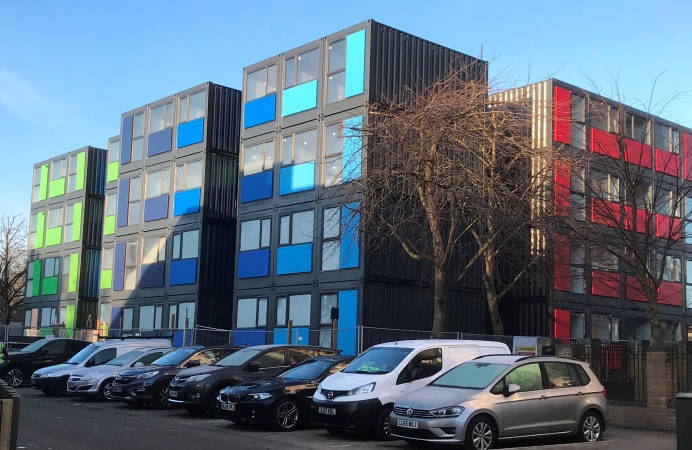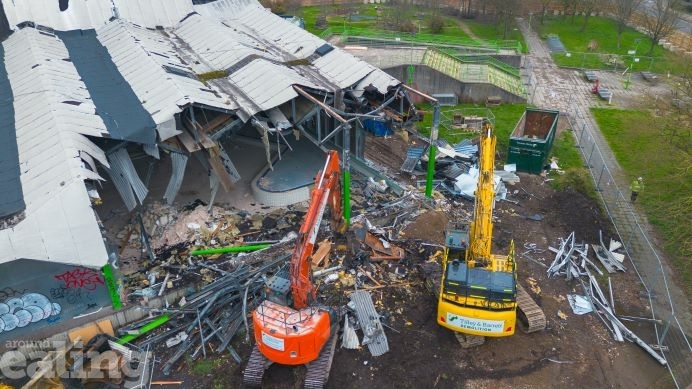Ealing Council’s ground-breaking modular temporary accommodation has won the Homes and Housing category at the Place West London Awards 2018, having been recognised for the clear improvements it has brought to the lives of homeless residents.
The homes, built in partnership with QED Sustainable Developments, are made from heavily modified shipping containers. They house 96 vulnerable households that would otherwise be in bed and breakfast accommodation.
Ealing was one of the first local authorities to use modular buildings as temporary accommodation in this way. The homes – Marston Court on Borders Walk in Hanwell and Meath Court on Hope Gardens in Acton – are built on formerly derelict sites which were blighted by anti-social behaviour and are earmarked for permanent development in the future. They are designed so that they can be easily moved to other sites when necessary.
Each temporary unit is self-contained, with its own front door, bathroom and kitchenette. Shared landscaped areas around the homes have play areas, laundry rooms and management offices. Because the homes are modular, it is relatively straightforward to plan for different sizes of accommodation.
Marie (not her real name) has a two-year old daughter and works part-time. After a year of living in bed and breakfasts with shared facilities she was offered accommodation at Marston Court. She said: “It was really difficult living in shared accommodation with my young daughter – I couldn’t ever leave her alone and didn’t always feel comfortable using the shared bathroom and kitchen as I didn’t know any of the other people in the hostel.
“When I arrived at Marston Court, I wasn’t sure I had the right address as it didn’t look like normal hostel accommodation. I was so happy that I had my own front door that I could lock and my own bathroom and kitchen. It gave me piece of mind that I was keeping my daughter safe. It was also a relief to be able to stay within Ealing, and be close to my friends, family and work.”
Councillor Peter Mason is Ealing Council’s lead member for housing, planning and transformation. He said: “For people who find themselves in the distressing position of being made homeless, these innovative homes provide a stable, comfortable environment to live in. For the same financial outlay as bed and breakfast, the homes offer 96 families a far better standard of accommodation, with a front door on each unit and private kitchen and bathroom facilities.
“The homes are a great way of bringing derelict, run-down sites which previously attracted fly-tipping and anti-social behaviour back into good use by housing families who desperately need a roof over their heads. We’re delighted that our ground-breaking approach has been recognised by the Place West London Awards.”
Ross Gilbert, Managing Director of QED said: “Throughout the planning and public consultation of the development we have ensured that Meath Court provides emergency accommodation that has its own kitchen, bathroom and front door which is safe and secure, with features that many emergency accommodation solutions don’t provide.”







